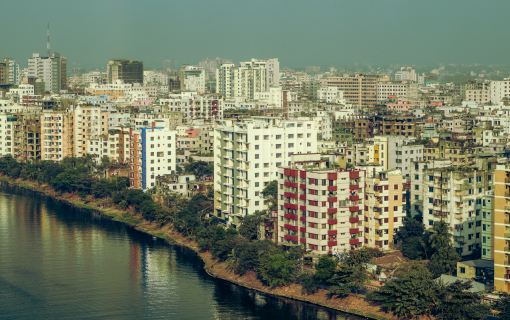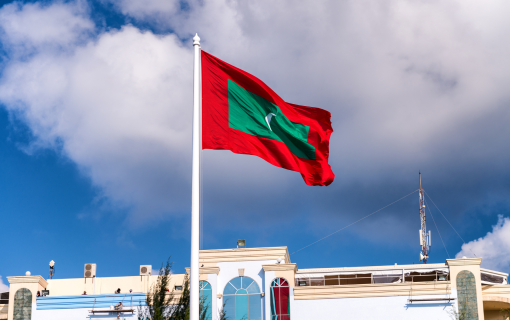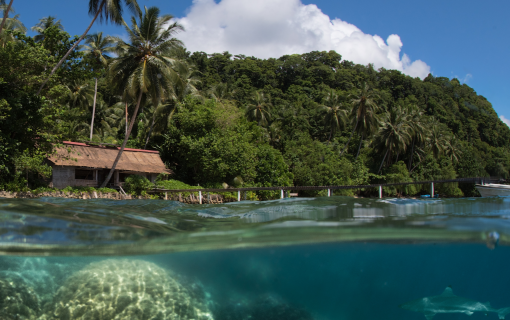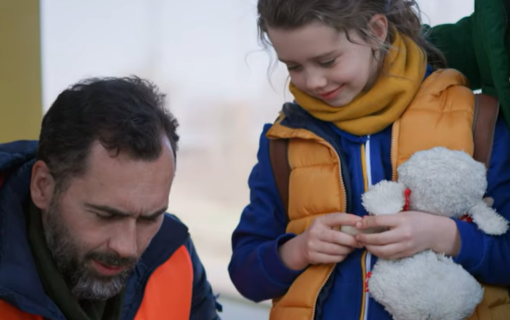IFES Alumni Goes Back to School, Looks to Level the Global Playing Field
Alexandra Matthews, a graduate student at the University of Gothenburg in Sweden, spent three years at IFES as a member of the South Asia team. In that capacity, she worked on projects in Nepal, India, the Maldives and Sri Lanka, many of which addressed the need to include marginalized and vulnerable populations.
During her tenure, Matthews also helped with IFES’ global gender work. Currently pursuing a master’s degree in global studies with a concentration in global gender studies, she tells us what she learned about empowering the vulnerable while at IFES and how this work inspired her continuing education.
During your time at IFES, you did a lot of work with vulnerable and marginalized populations. What are some of your favorite memories from your work in this area?
One of my favorite memories is working with IFES’ outstanding team in Nepal on a voter registration education project that targets frequently marginalized, underrepresented populations. This includes women, youth, Dalits and minority ethnic and religious groups. IFES worked with local civil society organizations and the Election Commission of Nepal to design informational and motivational voter education messages that would resonate with these specific groups.
Public awareness activities designed by IFES and its partners involved printing voter education materials and broadcasting radio public service announcements in local languages, street theater performances and presentations at community events. I have a distinct memory of sitting in a district election office in Nepal’s Terai region listening to the district election official explain that IFES’ program had made his job easier and he had already noticed an increase in young people registering to vote.
What are some of the successes you witnessed through the work?
Due to the success of IFES’ voter registration initiative in Nepal, the program was expanded to include activities that reach people with disabilities, a highly disenfranchised population in the country. IFES and the National Federation for the Disabled printed the first-ever Braille voter registration education materials in the country.
What are the best ways to engage vulnerable and marginalized populations in the political process?
Solutions vary depending on the country, political conditions and groups we are trying to reach. Above all, working with local partners – disabled persons organizations, human rights advocates, trusted community groups – that already do work with these populations is essential to make a meaningful impact. For example, in one conservative community in a remote region of Nepal, women are discouraged from leaving their homes. With this in mind, IFES and one of its partner organizations trained female community health volunteers to relay information about voter registration during their routine door-to-door vaccine deliveries.
What are the different ways that the international community can help support or promote the rights of vulnerable and marginalized populations?
There are numerous international human rights treaties that aim to protect the rights of traditionally marginalized groups, including the Convention on the Rights of Persons with Disabilities, the Convention for the Elimination of Discrimination against Women and the Convention on the Elimination of All Forms of Racial Discrimination, among others. Although such human rights instruments are non-binding and difficult to enforce, these populations can use them to advocate for their rights and draw international attention to rights violations.
Depending on specific needs, some ways the international community can support vulnerable and marginalized populations include: conducting leadership programs to encourage increased participation; building the capacity of local civil society to address issues affecting these populations; implementing public information campaigns to educate underrepresented people of their rights and how to access them; engaging national governments in dialogue on the status of disenfranchised groups; and when asked to provide technical assistance during constitution drafting or law reform processes – advocating for equal inclusion and representation of marginalized groups.
How did your work at IFES influence your decision to focus on gender studies during graduate school?
While it was inspiring to see so many talented, committed women affecting change in their countries, my work at IFES was a reminder of how much still needs to be done for many women to enjoy equal rights as men. Long-term political stability and economic development are contingent on the equal participation of men and women in all spheres of life. I decided to pursue this track in graduate school to broaden my expertise and eventually return to this important work with new perspectives and ideas.
I thought it would be interesting to study gender issues in Scandinavia, as Nordic countries are consistently ranked among the best places to be a woman. Despite the relative equality of men and women in the region, however, I have learned that gender politics here in Sweden are actually quite complicated. I look forward to examining these issues in more detail over the next few years.









